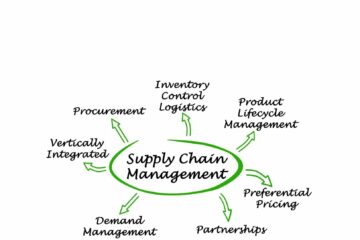Key Takeaways:
- Understanding the importance of efficient payroll management.
- Steps to streamline payroll for startups.
- Best practices for payroll management.
- Common mistakes to avoid.
Why Efficient Payroll Management Matters
Efficient payroll management is a cornerstone for any startup’s success. Ensuring that employees are paid accurately and on time not only enhances employee satisfaction but also aids in maintaining accurate financial records and complying with legal requirements. Late or incorrect payments can lead to worker dissatisfaction and even legal issues. For instance, a reliable payroll startup solution can significantly streamline these processes, reducing administrative burdens and minimizing errors.
According to a National Small Business Association report, payroll is one of small business owners’ most time-consuming administrative tasks. Mismanagement in this area can lead to severe consequences, including penalties for non-compliance, increased operational costs, and a demoralized workforce. Startups must recognize the importance of having a streamlined payroll process to ensure seamless business operations and to avoid potential pitfalls. Efficient payroll processes also free up valuable time, allowing entrepreneurs to focus on other critical business activities such as growth strategy and customer experience.
Steps To Streamline Your Payroll Processes
Streamlining payroll processes is essential for reducing errors and improving efficiency. Here are the key steps to achieve this:
- Automate Payroll: Use software solutions to automate the payroll process. This reduces errors and saves time. Automated systems calculate wages, tax withholdings, and deductions accurately and can also facilitate direct deposits. Automation also provides real-time payroll data, allowing business owners to make informed financial decisions.
- Maintain Accurate Records: Maintaining meticulous records can save you from future headaches and ensure compliance. Accurate records also help reduce discrepancies and can be crucial during audits. It’s advisable to document every step in the payroll process, from employee work hours to final payments. A well-maintained record system also aids in tracking attendance, overtime, and performance metrics, which can be essential for overall business planning and strategy.
- Set a Payroll Schedule: Establish a consistent payroll schedule to avoid last-minute hassles. This ensures that employees know when to expect their wages, which can improve morale and trust in the company. A consistent schedule also aids in financial planning and cash flow management, making predicting and managing business expenses easier.
- Train Your Team: Ensure that everyone involved in payroll management is properly trained. Understanding payroll systems and staying updated with changes in payroll laws can help avoid mistakes and ensure smooth operations. Training programs should include aspects like compliance with tax regulations, benefits administration, and use of payroll software. A well-trained team can effectively manage payroll-related queries, further improving employee satisfaction.
Automation and training are particularly crucial for startups with limited resources. By implementing these steps, you can ensure smooth payroll operations from the start. Automated software solutions minimize human errors, help in efficient resource management, and allow your team to focus on core business activities. Additionally, advanced payroll systems offer features like reporting and analytics, helping businesses continuously optimize their payroll processes.
Best Practices for Payroll Management
Implementing best practices in payroll management can save both time and money. These practices build a robust system that can handle complexities with ease:
- Regular Audits: Conduct regular audits to identify and correct payroll errors. Audits help catch discrepancies early, ensuring that any issues are resolved before they become significant problems. Regular audits also demonstrate a commitment to compliance and transparency, which can be beneficial during financial inspections or investor reviews.
- Use Direct Deposit: Adopt direct deposit to speed up the payment process and reduce paperwork. Direct deposits are secure, reliable, and preferred by most employees as they ensure timely payments without delays caused by manual processes. Implementing direct deposit systems can also save costs associated with printing and distributing checks.
- Stay Updated on Laws: Keep up with federal and state payroll laws to avoid penalties. Payroll laws can change frequently, and updating to maintain compliance and avoid penalties is crucial. Subscribing to newsletters from labor and tax authorities or participating in industry webinars can provide valuable insights into regulatory changes.
- Secure Employee Data: Invest in cybersecurity measures to protect sensitive employee information. With increasing cases of data breaches, securing payroll data against cyber threats is a necessary investment to protect your business and employees. Implement encryption, regular software updates, and employee training on data privacy best practices to enhance your security measures.
Adhering to these best practices may minimize unforeseen liabilities and greatly increase payroll system efficiency. Adhering to best practices guarantees that your payroll system is precise, effective, and complies with all applicable laws. Startups may ensure operational efficiency and concentrate on development by adopting these techniques. A well-functioning payroll system fosters employee satisfaction and trust, which improves the working environment and increases staff retention.
Common Mistakes To Avoid
Payroll management can be fraught with pitfalls. Awareness of the common mistakes can help in preemptively addressing them. Here are some common mistakes to avoid:
- Incorrect Employee Classification: Misclassifying employees can result in costly penalties. To comply with labor laws, correctly classify employees as exempt or non-exempt. Incorrect classification can lead to issues with overtime pay, taxes, and benefit entitlements.
- Failing to Keep Records: Inadequate payroll records can lead to compliance issues. Detailed records help in tracking payroll history and are essential during audits. Poor record-keeping can complicate tax filings and result in financial discrepancies, affecting your business’s credibility and growth prospects.
- Missing Deadlines: Late payments can result in fines and unhappy employees. Ensuring a timely payroll maintains trust and enhances employee satisfaction. Missed deadlines attract penalties and can reduce employee morale, affecting overall productivity. Reminders and alerts within your payroll system can help you stay on top of key dates and deadlines.
Conclusion
Efficient payroll management is essential for your startup’s smooth operation. You can ensure your payroll system runs smoothly by streamlining processes, following best practices, and avoiding common pitfalls. Leveraging a reliable payroll system can free up your time and resources, allowing you to focus on other critical aspects of growing your business. Moreover, a proficient payroll system enhances employee satisfaction and ensures compliance with legal requirements, safeguarding your startup against potential risks and penalties.
By investing in efficient payroll management practices and leveraging modern tools and technologies, startups can streamline their payroll processes and create a more productive and positive work environment. This fosters growth and stability and paves the way for long-term success and scalability. So, prioritizing payroll management isn’t just about cutting costs or avoiding legal issues; it’s about setting your startup up for sustainable success.
Stay in touch to get more updates & news on Timesanalysis !



